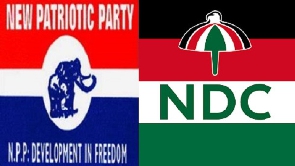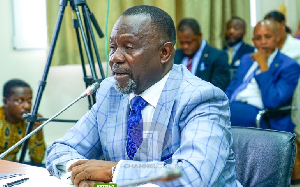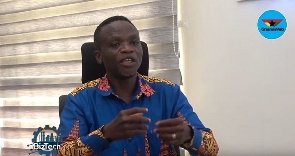As an economist, I have been analyzing the political landscape with keen interest, and several observations warrant attention from this perspective.
Firstly, despite the favourable conditions for the National Democratic Congress (NDC) to secure victory in the upcoming election, there are concerning signs indicating a loss of momentum. From an economic standpoint, this trend could have significant implications for the country's future policies and development trajectory.
One key observation is the apparent failure of the NDC to seize the initiative in shaping the discourse on economic policies and development agendas. While the New Patriotic Party (NPP), led by Vice President Bawumia, has been proactive in outlining its economic vision and priorities, the NDC has been comparatively passive in articulating its economic agenda. This lack of proactive engagement risks ceding ground to the NPP and allows them to dominate the narrative on economic issues.
Moreover, there seems to be a disconnection between the NDC's leadership and its grassroots supporters, which is particularly concerning from an economic perspective. Effective economic policies require a thorough understanding of the needs and aspirations of the population, especially those at the grassroots level. The NDC must bridge this gap and ensure that its policies are informed by the realities faced by ordinary citizens.
Another observation is the need for the NDC to demonstrate fiscal responsibility and sound economic management. Given the country's economic challenges, including high debt levels and fiscal deficits, voters are likely to scrutinize each party's economic credentials closely. The NDC must present a credible economic plan that addresses these challenges while promoting inclusive growth and poverty reduction.
To address these challenges and enhance its prospects in the upcoming election from an economist's perspective, the NDC should consider the following strategies:
Articulate a clear and coherent economic agenda that emphasizes fiscal discipline, prudent macroeconomic management, and policies aimed at promoting sustainable and inclusive growth.
Engage in evidence-based policy discourse and present well-researched proposals backed by economic analysis and data. This will help build credibility and instil confidence among voters and investors.
Prioritize investment in critical sectors such as infrastructure, education, and healthcare, which are essential for long-term economic development and poverty reduction.
Foster closer collaboration with economic experts, academia, and think tanks to leverage their expertise and insights in formulating economic policies and development strategies.
Communicate economic policies effectively to the public through targeted campaigns, policy briefs, and public engagements to ensure broad-based understanding and support.
In conclusion, from an economist's perspective, the NDC must adopt a proactive approach to economic policymaking and demonstrate leadership in addressing the country's economic challenges. By presenting a credible economic agenda and engaging effectively with voters, the NDC can enhance its electoral prospects and contribute to sustainable economic development in Ghana.
Opinions of Monday, 26 February 2024
Columnist: Selasie Cudjoe
Observations on the Ghanaian political landscape from an economist's perspective
Opinions














